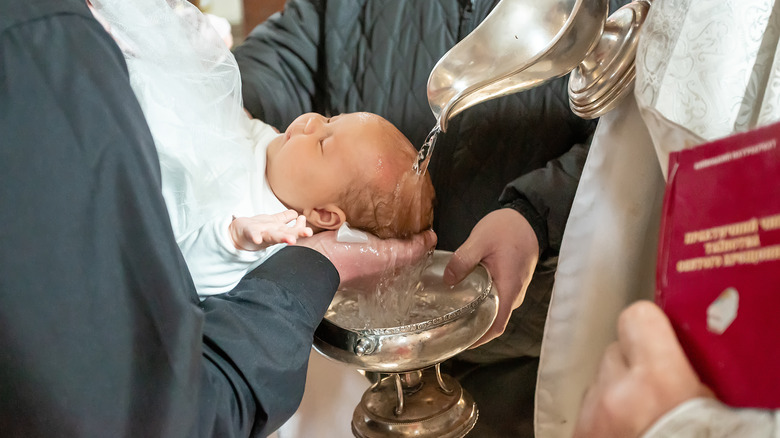The Real Reason Priests Must Follow The Exact Wording In All Baptisms
Many of the world's religions are guided by ceremony and ritual. For example, as The Pluralism Project notes, Muslims pray five times per day, each prayer requiring actions, postures, and recitations that must be done properly and in the correct order. Similarly, according to Learn Religions, most Hindu weddings include a number of core rituals, as well as certain other rites specific to the families' situations.
In Roman Catholicism, ritual plays a huge role in the life of the believer. The Catholic Church has identified seven sacraments that are likely to come up in the life of a faithful Catholic, according to Britannica, each of them greatly relying on the proper completion of various rituals.
Unfortunately for several thousand Arizona Catholics, a parish priest had, for decades, using the wrong word during one part of the baptism ritual, as NPR News noted, effectively rendering all of those baptisms invalid in the eyes of the Catholic Church.
A minor deviation caused major problems
For decades, according to NPR News, Rev. Andres Arango baptized infants while reciting the phrase, "we baptize you in the Name of the Father and of the Son and of the Holy Spirit" (or the equivalent phrase in Spanish). What he should have been saying, according to his superiors, is "I baptize..." It may seem a minor matter of using a plural pronoun instead of a singular one, but wrong is wrong, says the Catholic Diocese of Phoenix, and as such, all of the thousands of baptisms he performed are invalid.
The diocese compared the improper baptisms to an improper Eucharist. "If a priest uses milk instead of wine during the Consecration of the Eucharist, the sacrament is not valid. The milk would not become the Blood of Jesus Christ," it said. Similarly, according to Catholic Philly, when the priest baptizes, he's acting on the authority of Jesus Christ and indeed is effectively playing the role of Christ himself. "When the minister says, 'I baptize you ...' he does not speak as a functionary who carries out a role entrusted to him, but he enacts ministerially the sign-presence of Christ," said the Congregation for the Doctrine of the Faith.

